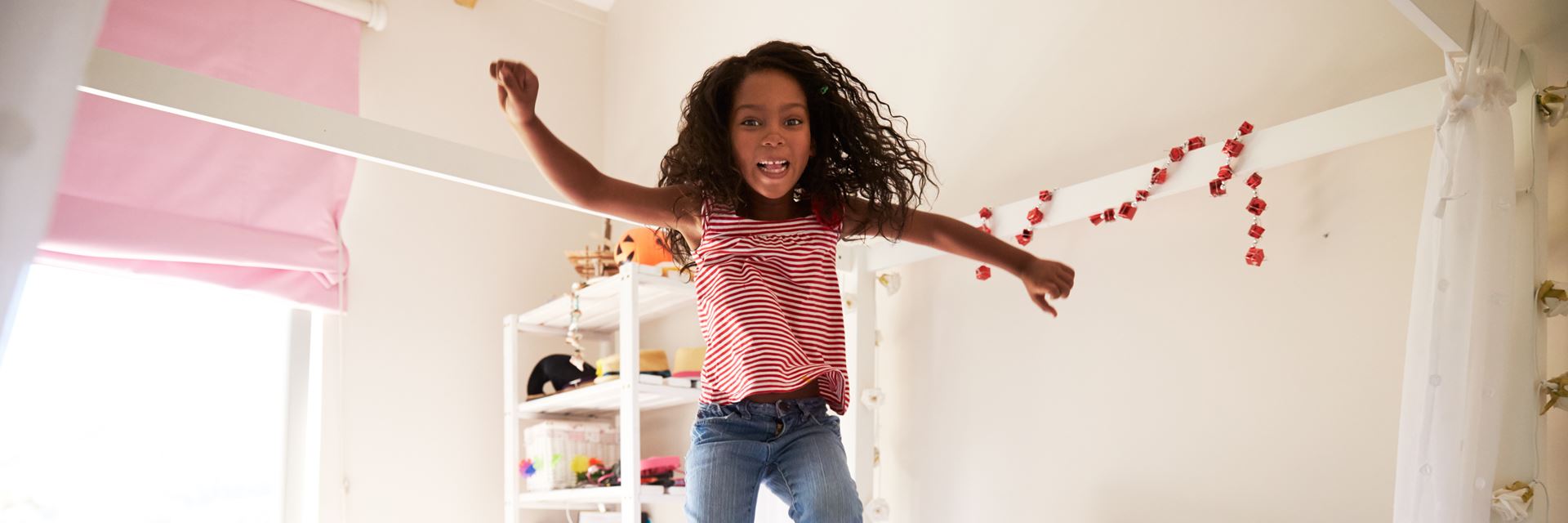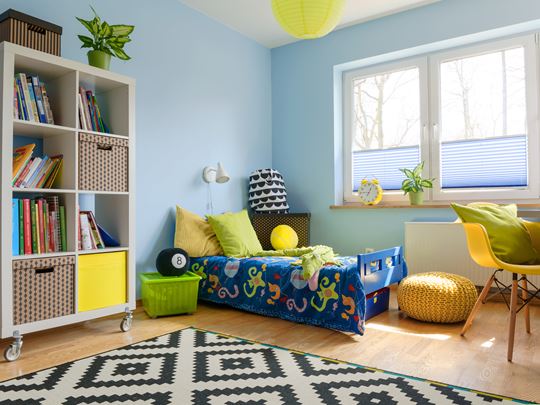It's a legal requirement for any child over the age of 3 to have their own room. This is to ensure the child you foster has the privacy and space they require. Babies, however, can usually share a foster carer's bedroom up to a certain age (usually around 12-18 months).
A child or young person's bedroom is a place they can call their own and it acts as their special ‘safe-haven’ - somewhere they can go to get a sense of quiet and privacy, or even to play and be creative.
It’s also a really important part of helping a child in foster care feel like they belong. Importantly, it also acts as a kind of ‘stepping-stone’ into their new foster family, helping them acclimatise and settle in. For these reasons, local authorities won't generally allow them to share a bedroom with other children (except with their own siblings depending on age and space available).
For foster parents, there’s another practical reason why a separate room is important. It’s a place where children in care can learn boundaries and routines, such as regular bedtimes, or spend time without disrupting other members in the household.
Frequently asked questions
What are the home requirements for foster care?
Firstly, it doesn't matter if you own or rent your home. If you're living in a rental property, you will need to ask the landlord for permission before you become a foster parent.
Regardless of whether you own or rent your home, you'll also need to inform your home insurance provider to ensure that your existing policy adequately covers fostering too.
You'll also need to have adequate space to welcome a child into your home, so they have their own bedroom and personal space.
As part of your assessment, we'll also complete a health and safety assessment of your home, and will speak to you about any concerns and work that needs to be completed to foster.
This assessment will cover things like:
- Checking that your home is clean, well-maintained and safe for a child to be placed with you.
- Ensuring your home meets the latest fire regulations, including testing your fire and C02 alarms.
- Making sure any outdoor space is secure and safe for children to play in.
- Checking you have a secure place to store sharp and potentially dangerous items, such as knives, medicine, and harmful chemicals.
We will also need to complete a DBS check on anybody over the age of 18 who's living in your home, including any other children, family members and lodgers.
What counts as a spare bedroom for fostering?
We generally look for a room that's big enough to fit a bed, bedside cabinet and small wardrobe. Ideally, there would also be room for a desk where the child can do their homework, and space for them to play too.
However, we understand that many homes are not built with this kind of space within each bedroom, so we'd also check whether there are other areas within the home that could be used for these kinds of activities. For example, is there a quiet space for a desk where a child could do their homework? Is there ample space around the home for a child to play?
The bedroom for fostering would also need to be either on the same level or above your bedroom.
Can my children share a bedroom so I have a spare bedroom for fostering?
To provide a nurturing environment when fostering, it's necessary for every child in your home to have their own bedroom when fostering.
Providing individual bedrooms allows each child to have their own personal space, offering a sanctuary for moments of solitude and reflection. This arrangement also helps to minimise potential conflicts, enhances privacy, and fosters a deep sense of belonging for each child in the home.
Can a foster child share a bedroom with my child?
No, children in care must have their own bedroom.
This provides them - and your child - with privacy and somewhere they can chill out on their own, as well as a greater sense of belonging.
Can foster siblings share a bedroom?
Generally, it's a requirement for each child in the foster home to have their own bedroom.
There may be some special circumstances where a local authority may allow young siblings in care to share a bedroom if they believe it's the best option for the children's needs.
For example, a local authority may have two families available:
- Family A - local to the children's community, including their family, friends and school, however, the children would need to share a bedroom.
- Family B - children would not need to share a bedroom, however, they live in another local authority district and would need to travel further to attend school and spend time with family.
In this scenario, the local authority may decide that family A would be more able to meet the children's needs. However, this decision is completely up to the local authority.
How to create a happy room for children in care
While there are minimum requirements your spare bedroom in order to foster, there’s much more you can do to prepare it so that it is a safe and welcoming place that actually helps build a child’s confidence and becomes somewhere they love and want to be.
Please make sure you read our terms and conditions because you're agreeing to them by submitting an enquiry. It's also worth reading our privacy policy and cookies policy so you understand how we collect and use your personal data.
Ready to start your fostering journey?
By phone
One of our team is available to talk to you over the phone to answer any of your fostering queries.
Enquire online
You can get in touch by filling out our online enquiry form with any queries that you may have.
Your local office
We have local teams covering most of England. Find your local office today.

